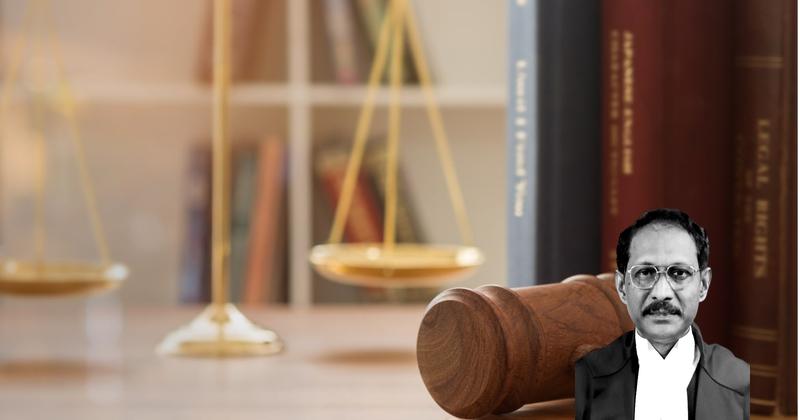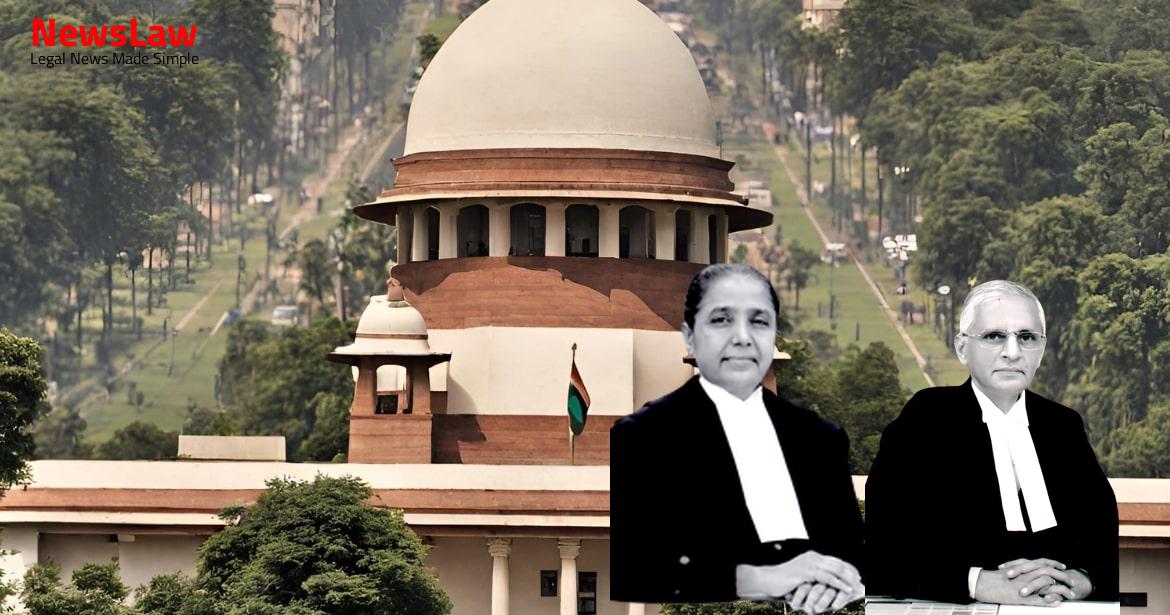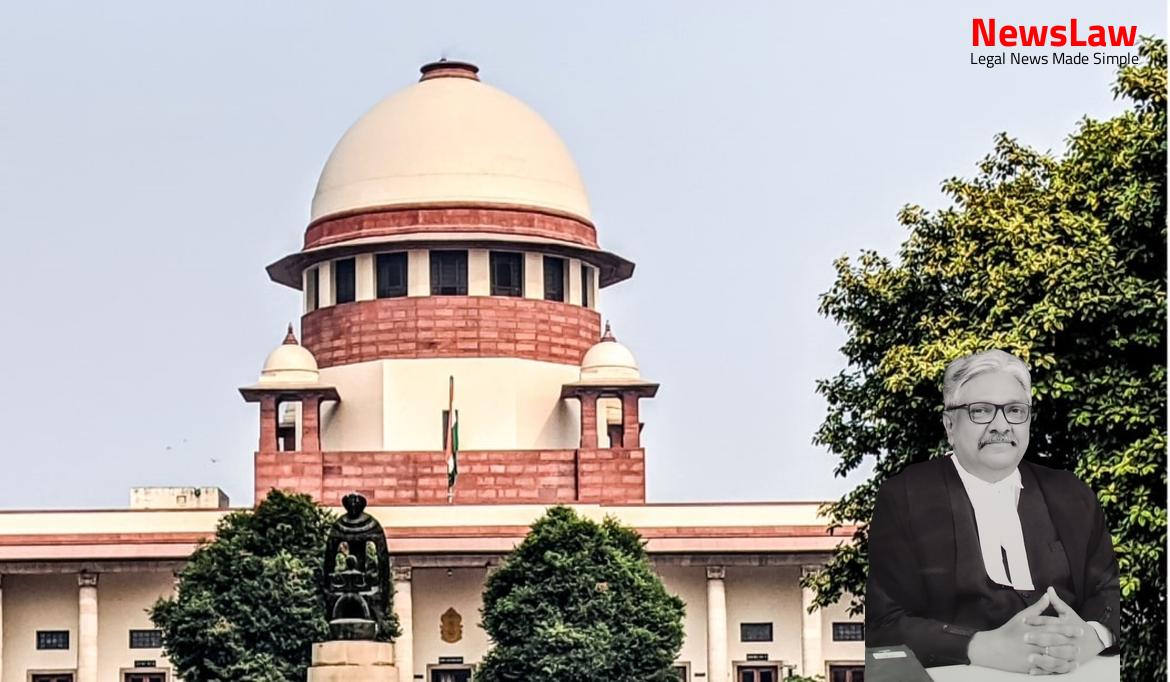In a significant legal battle between the Appellants and Project Engineer (Electrical), the Supreme Court of India has delivered a crucial judgment on the challenge to the absorption of the Project Engineer. The case revolves around the eligibility for promotion and the impact on the Appellants’ rights. Stay tuned for key insights on this important legal matter.
Facts
- The High Court dismissed the Writ Petition filed by the appellants challenging the appointment of the Project Engineer (Electrical) on deputation in NOIDA.
- The appointment of respondent no. 4 and his subsequent absorption was the subject of the appeal.
- The appellants contested the appointment process in their Writ Petition.
- The High Court’s decision on 08.02.2017 formed the basis of the appeal.
- The appellants challenged the appointment of respondent no. 4 on deputation as Project Engineer (Electrical) in NOIDA.
- The High Court allowed an amendment application to challenge the appointment order of respondent no. 4.
- The High Court was approached again by the appellants through a Writ Petition to quash the recommendation for the absorption of respondent no. 4.
- Despite the challenges, respondent no. 4 was absorbed as Project Engineer (Electrical) based on a recommendation made on 16.02.2015 and an order issued on 07.05.2015.
Issue
- The core issue is whether the recruitment of the Project Engineer (Electrical) on deputation and his absorption is permissible under NOIDA Service Regulations, 1981.
- Appellants are questioning the eligibility of the Project Engineer for promotion and whether their right to promotion is affected by his absorption.
- If appellants are found not eligible for promotion, can they challenge the appointment or absorption of the Project Engineer.
Also Read: Challenges to Eyewitness Testimony
Arguments
- Respondent no. 4 was not a government employee, therefore not eligible for absorption under Absorption Rules, 1984.
- There exists another set of Rules called the ‘1987 Regulations’ applicable to employees of corporations like the Uttar Pradesh Power Corporation.
- The 1987 Regulations allow for the absorption of corporation employees into the service of the State Government or other government undertakings.
- No specific orders restricting the power of appointment, including appointment by deputation, were presented by the appellants to challenge the eligibility criteria for promotion to the post of Project Engineer (Electrical).
- Eligibility for promotion to the post of Project Engineer is determined as having a Degree in Engineering.
- In addition, a minimum of 8 years of experience as an Assistant Project Engineer is required for consideration.
- These criteria are specified to ensure that applicants are adequately qualified for the position and possess the necessary experience.
Also Read: Interpretation of ‘Agreement to Lease’ in Land Tenancy Dispute
Analysis
- The recruitment and promotion of employees within the Authority is governed by specific regulations and guidelines.
- The regulations specify the sources of recruitment for different groups of posts under the Authority.
- For Group ‘A’ posts, 66% are to be filled by direct recruitment and 34% by promotion from existing employees based on seniority.
- Specific conditions regarding qualifications and work experience are outlined for promotions within different groups.
- The Authority has the power to modify recruitment sources and percentages as deemed necessary.
- The State Government has control over the Authority and can issue directions for efficient administration.
- In case of disputes between the Authority and the State Government, the State Government’s decision is final.
- The State Government can review orders or directions issued by the Authority for legality or propriety.
- Provisions exist for the absorption of government servants in the Authority’s service if certain conditions are met.
- The appellants were not eligible for promotion at the time of respondent no. 4’s appointment and subsequent absorption.
- The challenge by the appellants to the appointment and absorption of respondent no. 4 is not tenable, and they lack locus standi in the matter.
- Regulation 16 of 1981 allows for recruitment by deputation, direct recruitment, or other sources.
- The appellants’ reliance on the 2005 Recruitment and Promotion Policy is unfounded as it was never implemented due to inconsistencies with the 1981 Regulations.
- The State Government directed NOIDA to ensure policy consistency with the Regulations.
- The impugned order does not wrongfully affect the appellants’ title to something.
- In a case involving a Senior Inspector in the Railway Protection Force deputed to NOIDA and subsequently absorbed, the court analyzed the 1981 Regulations.
- The court held that the appointment on deputation and subsequent absorption in NOIDA was permissible.
- It was noted that such an employee cannot be in a position where they are neither an employee of the Authority nor of the parent department.
- Referring to the Jasbhai Motibhai Desai Vs. Roshan Kumar case, the court emphasized that unless a person suffers a personal injury, they cannot be considered aggrieved and have no locus standi.
- The appellant in this case was found not to have been denied or deprived of a legal right.
Case Title: SHRIPAL BHATI Vs. STATE OF UP (2020 INSC 102)
Case Number: C.A. No.-000802-000802 / 2020



